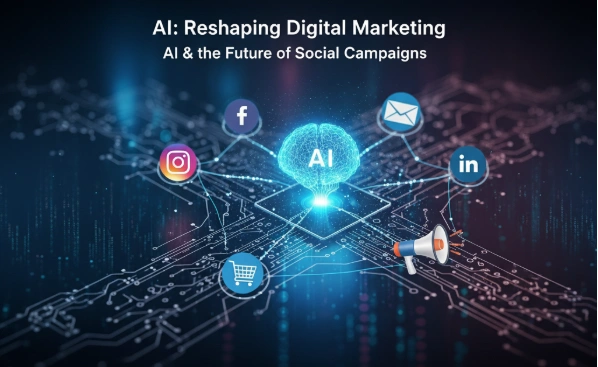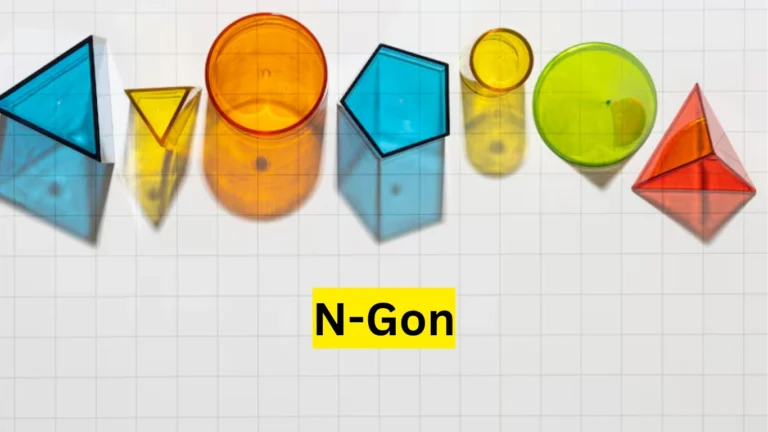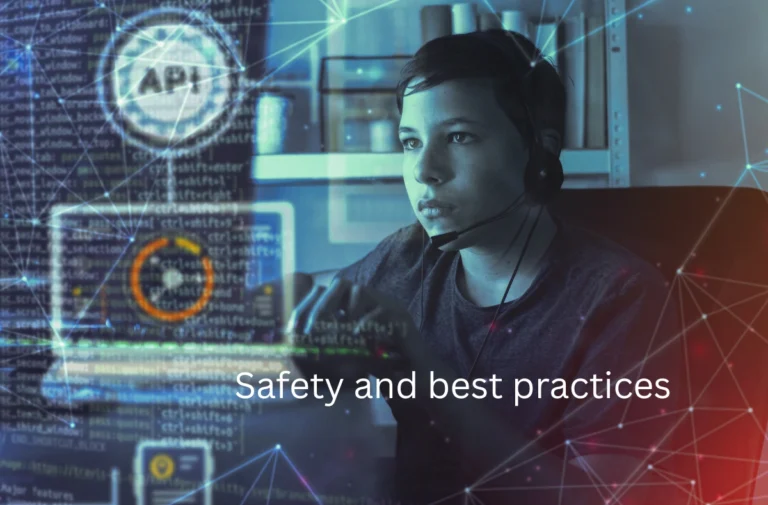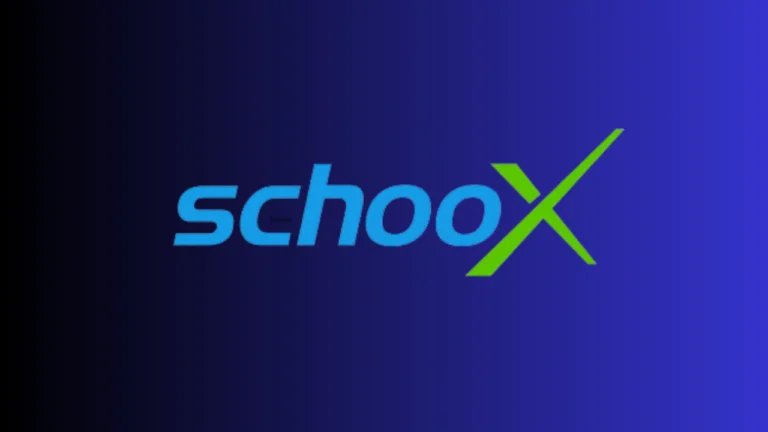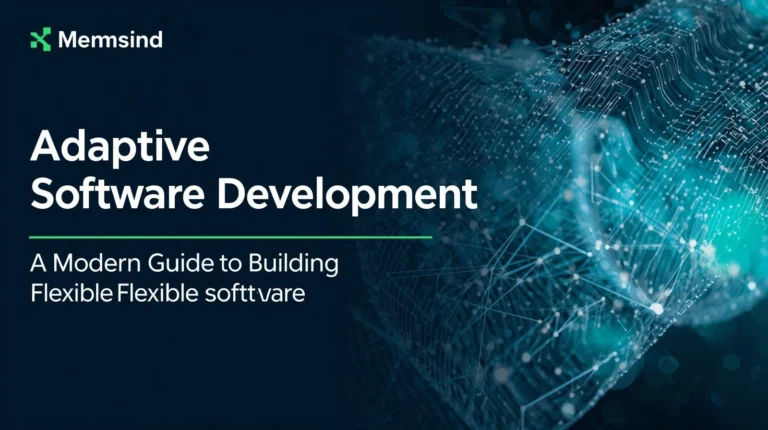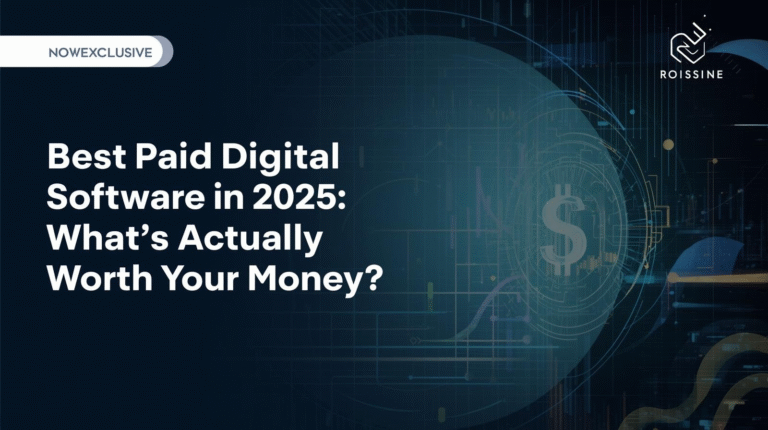How AI is Transforming Digital Social Marketing Campaigns in 2025
If you’ve been following trends in marketing, you’ve probably noticed one thing: Artificial Intelligence (AI) is no longer just a futuristic idea—it’s a game-changer for digital social marketing campaigns. AI in marketing is helping brands connect with audiences in smarter, faster, and more personalized ways. But what does that really mean for marketers, brands, and consumers? Let’s break it down.
1. Personalization Like Never Before
Remember when personalization meant just adding someone’s name to an email? That’s old news. Today, AI can tailor entire experiences to individual users, analyzing everything from browsing habits to social engagement, purchase history, and even the time someone’s most active online. Imagine this: two people visit the same online store. One is reading a blog about marathon training, the other is browsing office wear. With AI, each sees products perfectly aligned with their interests—running shoes for the first, formal shoes for the second. That’s personalization at scale, turning generic campaigns into highly relevant interactions and showcasing the power of AI in marketing.
2. Predicting Trends and Customer Behavior
AI doesn’t just look backward—it forecasts the future. Spotting trends early, AI scans social chatter, trending topics, and emerging conversations to help brands create content that rides the wave before it peaks. You’re not just joining a trend; you’re often ahead of it. AI can also identify which users are likely to churn, which leads have the highest conversion potential, and even the best time to reach them. This shifts marketing from reactive to proactive, making digital social marketing more strategic and efficient.
3. Boosting Creativity with AI
Generative AI tools act like a supercharged assistant for marketers. They help brainstorm new ideas, write catchy ad copy, create image variations, and even produce video scripts. AI ensures all content stays on brand and consistent across platforms. But humans still play a key role—guiding AI outputs, adding storytelling, emotion, and personality. This partnership highlights how AI in marketing amplifies human creativity rather than replacing it.
4. Engaging Audiences in Real Time
Today’s consumers expect instant responses. AI-powered chatbots and messaging tools can handle complex queries, recommend products, and even complete sales directly in apps like WhatsApp or Messenger. AI can also monitor sentiment in real-time, flagging issues, highlighting positive interactions, and helping brands respond promptly. This allows teams to deliver meaningful engagement without being overwhelmed, another key advantage of AI in marketing.
5. Smarter, More Efficient Advertising
Social media advertising is no longer about guessing and hoping for clicks. AI optimizes campaigns with precision. Programmatic ad buying lets AI bid on ad space in real time, targeting users most likely to act while keeping costs low. Multivariate testing identifies which combinations of visuals, headlines, and copy work best, automatically prioritizing top-performing creatives. This makes campaigns faster, more effective, and far less labor-intensive.
The AI-Human Partnership
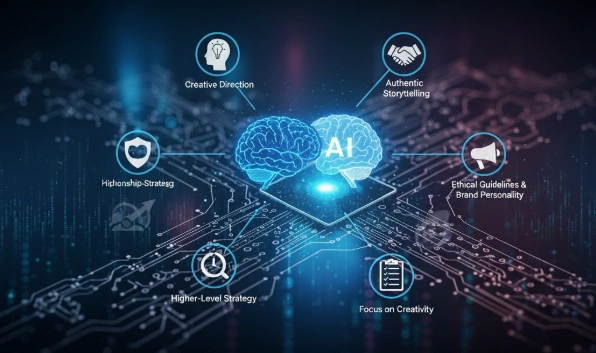
AI isn’t replacing marketers—it’s partnering with them. Professionals are shifting from routine tasks like scheduling posts and analyzing data to higher-level strategy, creative direction, and relationship-building. AI handles the heavy lifting, while humans focus on authentic storytelling, ethical guidelines, and brand personality. This collaboration is the future of digital social marketing campaigns.
Challenges to Keep in Mind
Powerful as it is, AI comes with responsibilities. Brands must respect data privacy and comply with regulations like GDPR and CCPA, audit AI models to prevent bias, and ensure campaigns remain authentic. Over-reliance on AI can create robotic, impersonal messaging. The winning marketers will use AI to enhance human creativity, not replace it.
Conclusion
AI in marketing is reshaping digital social marketing campaigns from every angle. From hyper-personalization to predictive analytics, content creation, real-time engagement, and smarter advertising, it gives marketers the tools to connect with audiences more effectively than ever. Brands that combine AI power with human creativity will thrive—turning insights into action, data into strategy, and technology into meaningful customer relationships.
FAQs
Q1: How does AI in marketing impact digital social marketing campaigns?
Q2: Can AI replace human marketers in social media campaigns?
A2: No, AI in marketing complements human creativity, automates repetitive tasks, analyzes data, and allows marketers to focus on strategy and storytelling.
Q3: What is hyper-personalization in marketing?
A3: Hyper-personalization uses AI to tailor content, ads, and recommendations to individual users based on their behavior, preferences, and engagement patterns.
Q4: How does AI help with predictive analytics?
A4: AI analyzes data to forecast trends, customer behavior, churn risk, and the best engagement times, allowing marketers to act proactively instead of reactively.
Q5: What are the ethical concerns when using AI in marketing?
A5: Key concerns include data privacy compliance (GDPR/CCPA), algorithmic bias, and maintaining authentic brand messaging without over-relying on AI-generated content.

